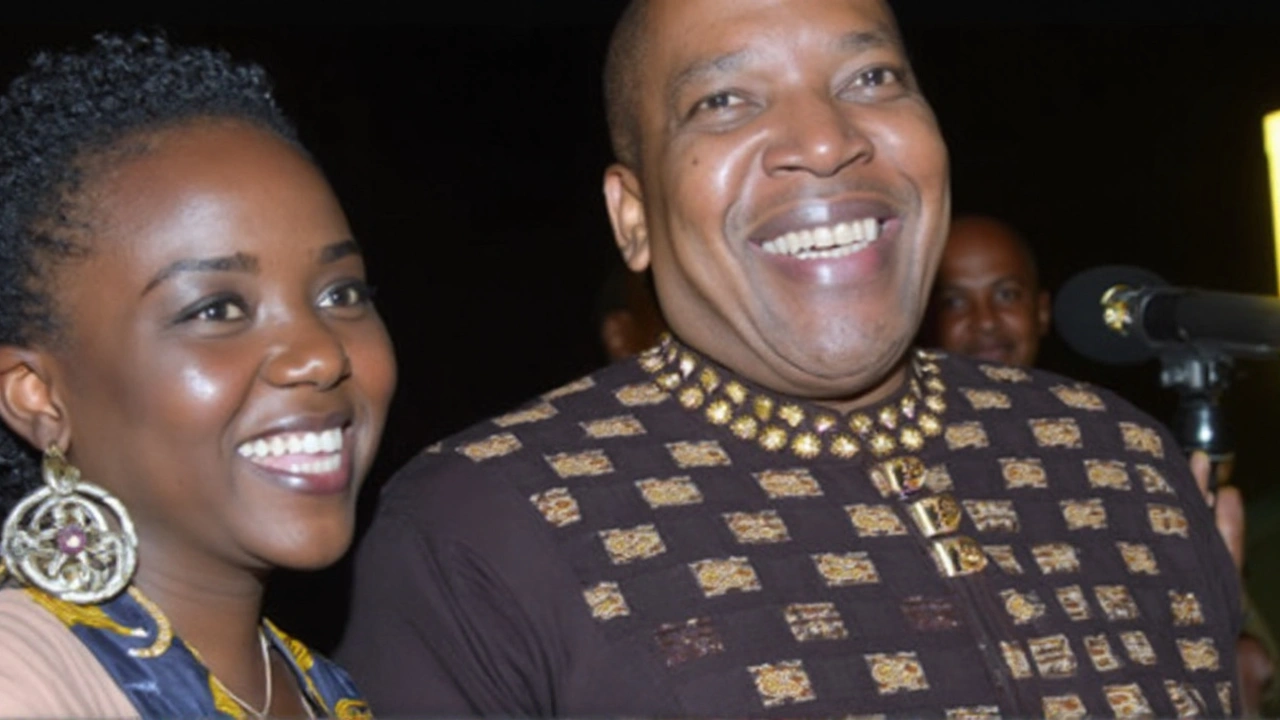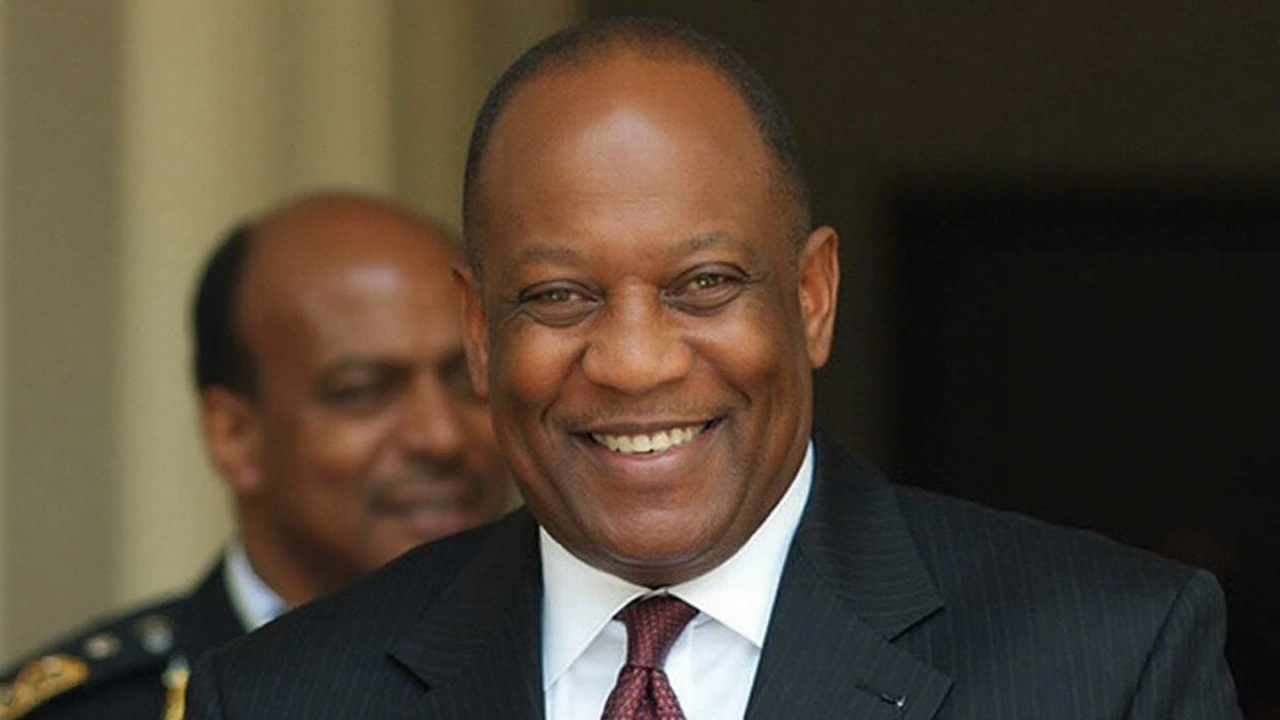A young chief of staff, a closed process, and a political firestorm
When 25-year-old Thuthukile Zuma was named chief of staff to Minister Siyabonga Cwele in July 2014, the backlash landed squarely at the door of her father, Jacob Zuma. The post was not advertised, the salary sat near the R1 million mark, and the title made her the youngest head of a minister’s office in South Africa’s democratic era. Within days, opposition parties, civil servants, and the public were arguing over whether this was merit, ministerial discretion, or straight-up nepotism.
The timing amplified the blowback. South Africa had just held national elections, and the presidency had split communications into a new Department of Telecommunications and Postal Services. Cwele, moved across from State Security, built his political office under tight deadlines. Thuthukile’s appointment as his chief of staff, a senior management post, was swift—and unusually high-profile because of her surname.
Chiefs of staff are not junior aides. They run a minister’s private office: planning, budgets, schedules, stakeholder meetings, and coordination with director-generals and state entities. They manage political priorities while keeping the administrative machine moving. In short, it’s a leadership job that usually goes to people with long public-sector or organisational experience.
Critics said that is exactly what was missing. At 25, Thuthukile had a degree in anthropology from Wits (2012), a short stint as a public liaison officer at the State Security Agency, and time co-running a small media business with her sisters. That’s a thin CV for a post at Senior Management Service level. The fact that the position was not advertised cut even deeper—many saw it as proof that well-connected insiders get first pick while qualified applicants never see the vacancy.
The department pushed back. Cwele said he looked only at her capacity and qualifications, not her family tree. Officials argued that ministers have latitude to hire staff in their private offices, and it is standard to move trusted aides when portfolios change. In their view, this was a lawful appointment made at speed to fill a critical post.
Thuthukile’s path into government traced the same networks. She graduated from Westerford High School in 2006, studied anthropology at Wits, and joined the State Security Agency as a liaison officer. When Cwele shifted from State Security to Telecommunications after the 2014 election, she moved into his new office. That proximity made the choice less surprising internally, but it did nothing to cool the public debate outside.
So where do the rules stand? In South Africa, some posts in a minister’s private office can be filled without formal advertising, under powers meant for time-sensitive political staffing. But this discretion comes with expectations. The Public Service Commission (PSC) consistently stresses the need for clear job requirements, fair screening, and demonstrable competence—especially for senior managers who handle budgets and oversee teams. The same PSC language surfaced again when this appointment came under the microscope.
The uproar quickly moved beyond opinion. Complaints reached the Public Protector in July 2014, and the PSC launched a review of the appointment’s regularity. The Commission’s later report did not read like a political broadside. It drilled into basics: senior office heads should meet minimum management, administrative, liaison, and interpersonal standards; departments must document why a chosen candidate fits those standards; and deviations from usual recruitment should be recorded and justified. It was a call for process, not politics.
Opposition parties, including the Democratic Alliance and the Economic Freedom Fighters, kept the pressure on, arguing the episode revealed an unhealthy pattern: insiders and relatives landing powerful jobs through opaque processes. They linked it to a broader debate around cadre deployment, where political loyalty shapes hiring across the state. The ANC countered that political appointments in ministerial offices happen in democracies everywhere, and ministers must be able to pick teams they trust—provided those teams can do the job.
The public reaction was raw and personal. On talk radio and social media, young graduates spoke about sending out hundreds of CVs with no reply, while top-tier posts seemed to bypass the open market. For many, the problem was not just the name on the appointment letter, but the message the process sent: effort and qualifications struggle to beat connections.
Inside government, officials tried to narrow the conversation back to rules. Ministerial offices, they argued, are political environments with high turnover after elections. Rapid appointments are normal. But that line still ran into a hard truth: the more senior the post, the more visible the decision—and the more it needs to be explained. Without a public advert, the burden of justification sits heavier on the appointing authority.
By the end of 2015 the saga took its final turn. The department confirmed that Thuthukile resigned as chief of staff in December that year. No detailed reasons were offered. Supporters said the media storm made the job untenable. Critics saw the resignation as an admission that the process could not stand the scrutiny. Officially, the file closed quietly—no courtroom drama, no dramatic firing, just a vacancy and a new appointment later.
This one case became shorthand for a bigger governance problem: how to balance a minister’s right to choose a team with the public’s right to fairness and transparency. In the core public service, competitive advertising, competency tests, and scoring panels are the norm. In political offices, discretion is wider—but not infinite. When a role includes line management and budget oversight, it looks and feels like a career post, and the public expects career-grade recruitment.
It also reopened an old question about nepotism. The law does not ban a relative from public office, but it does demand avoidance of conflicts of interest and requires that decisions be rational and recorded. “Nepotism” is often a moral judgment: did family connections tilt the scales? In this case, the process shortfalls—no advertisement, limited experience, rapid selection—left space for that judgment to grow.
International comparisons don’t make the optics easier. Many democracies allow ministers to appoint chiefs of staff without public adverts. The difference is how those choices are documented and defended. Some governments publish appointment memos, minimum criteria, and declarations of interest. They also set baseline managerial requirements for senior staff, even in political offices. That transparency blunts accusations before they harden.
South Africa has nudged in that direction. The PSC has kept up the drumbeat for professionalising recruitment and documenting deviations. Successive administrations have talked up merit-based appointments and tighter controls on senior hiring. The goal is simple: make it easy to explain why the winner got the job, and harder for connections to carry the day without evidence of competence.
The Thuthukile episode sits inside a larger arc of the Zuma years, where rows over appointments, procurement, and influence piled up and fed a narrative about state institutions being bent by politics. This case did not involve a stolen tender or a court finding of misconduct. But it did change how South Africans read the fine print of government notices and staffing decisions. It made process a political issue in its own right.
There’s a human angle too. A young professional took on a tough job and became a national symbol—fairly or not—for a system under strain. The outcry wasn’t just about her; it was about thousands of graduates stuck in queues and senior posts filled behind closed doors. When people lose faith that the best person gets the role, they begin to doubt every outcome that follows.
The lesson for any government is practical. If you’re going to exercise discretion, show your working: define the role, publish the criteria where possible, record the screening, and disclose conflicts. That paper trail won’t silence everyone, but it gives watchdogs something to test and the public something to trust.
Years later, the details remain familiar: a fast appointment, a famous surname, a hard job, and a resignation. The systems around that story—transparent hiring, competency standards, and clear lines between political loyalty and managerial authority—are still the real test. South Africans will keep watching those systems, because they’ve learned how much turns on what happens behind the office door.

Key dates and facts that shaped the debate
• July 2014: Thuthukile Zuma is appointed chief of staff to Telecommunications and Postal Services Minister Siyabonga Cwele. The role is a senior management post within the minister’s private office.
• Salary band: The package sat near R1 million per year, placing it among top-tier office-head positions.
• Process concerns: The post was not publicly advertised, triggering complaints about transparency and fair competition.
• Oversight: Complaints were lodged with the Public Protector in July 2014. The Public Service Commission reviewed the case and reiterated that appointees at this level should meet minimum management, administrative, liaison, and interpersonal competencies and that departments must document their rationale.
• Background: Born 28 April 1989, Thuthukile Zuma studied anthropology at Wits, co-ran a small production company with her sisters, and worked briefly at the State Security Agency before the appointment.
• December 2015: She resigns as chief of staff. No detailed reasons are publicly provided.
The controversy endures as a case study in how process shapes public trust. Political discretion exists, but so do expectations around fairness. When those two collide, the fallout can outlast any single appointment.






Tyler Tucker
September 16, 2025 AT 18:24What a circus this is
julia mutambara
September 20, 2025 AT 19:38It’s truly heartening to see how a single episode can spark such a broad conversation about transparency and meritocracy, and I think we can all agree that the core of any thriving democracy rests on those very principles; when we confront the realities of political appointments, we find opportunities to educate emerging professionals about the importance of integrity and the value of systematic processes, and while the controversy surrounding Thuthukile Zuma’s appointment was certainly intense, it also opened doors for many young South Africans to engage more critically with civic responsibilities, encouraging them to advocate for clearer guidelines and more inclusive hiring practices that can bridge the gap between political necessity and fair competition, and we must remember that every stakeholder, from the seasoned bureaucrat to the fresh graduate, plays a crucial role in shaping a more accountable public sector; by fostering mentorship programs that emphasize skill development and ethical standards, we can gradually build a pipeline of talent that feels both empowered and validated, and this collective effort will ultimately reduce the reliance on patronage networks that have historically undermined public trust, leading to a more resilient and equitable governance structure that benefits everyone involved.
Nelleke Elston
September 24, 2025 AT 18:04Look, you can spin this any way you want but the facts are plain – a 25‑year‑old with barely a dash of experience lands a million‑rand job while thousands of qualified candidates are left in the cold; that’s not just nepotism it’s a blatant disregard for merit and the very rules the Public Service Commission tries to uphold, and don’t sell me the ‘political discretion’ excuse because it’s a thin veil that only serves to protect insiders from scrutiny, the whole thing reeks of entitlement and the kind of back‑room dealing that erodes public confidence faster than any policy slip‑up could.
Shreyas Badiye
September 28, 2025 AT 22:04Honestly i think it’s a good chance for the whole system to learn something new 😊 the fact that thuthukile got the job quickly shows how fast political offices need to move but at the same time it highlights the need for clear documented processes that all can see – imagine if every appointment came with a short summary of qualifications and a public posting, that would make things transparent and still keep the speed that ministries demand, plus it could inspire other young professionals to see a path forward that isn’t just about who you know but also about what you can prove you can do – so maybe this controversy is a stepping stone for better practices!
just a thought, we all can push for that together.
Jocelyn Garcia
October 3, 2025 AT 04:51Let’s focus on building stronger mentorship pipelines within the civil service; by pairing seasoned administrators with emerging talent we can ensure knowledge transfer and create clear pathways for advancement that don’t rely on family connections.
Sagar Singh
October 7, 2025 AT 14:24Drama aside the system needs a reality check
aishwarya singh
October 12, 2025 AT 02:44That’s true, the whole thing feels like a perfect storm of politics and public perception, and while it’s easy to get caught up in sensational headlines, the underlying issue is how we can make recruitment processes both swift and fair – a balance that many governments struggle with, and I think open dialogues like this help keep pressure on officials to refine their practices.
Ajay Kumar
October 16, 2025 AT 17:51Everyone loves a scandal but forgets the bigger picture – the real problem is a broken merit system that lets nepotism flourish like a weed in a garden that should be tended with rules.
somiya Banerjee
October 21, 2025 AT 08:58Yeh, but let’s not forget this is our country and our people, when outsiders point fingers they forget the pride we have in handling our own affairs, still the drama could be used to push for better transparency – keep it friendly but firm.
Rahul Verma
October 26, 2025 AT 04:38They’re hiding the real agenda behind a simple appointment scandal the entire system is rigged by unseen forces pulling strings
Vishnu Das
October 31, 2025 AT 01:18While there are certainly concerns about the process, it’s important to remember that the Public Service Commission’s role is to provide oversight, and constructive dialogue can help improve transparency; let’s aim for solutions rather than conjecture, shall we?
sandeep sharma
November 5, 2025 AT 03:31Time to channel that energy into advocacy – push for clear job ads, documented criteria, and regular audits; together we can turn this controversy into a catalyst for positive change!
pragya bharti
November 10, 2025 AT 08:31In the grand tapestry of governance, each thread of controversy weaves a lesson; perhaps the true philosophy is that transparency isn’t a static rule but a living practice we must nurture daily.